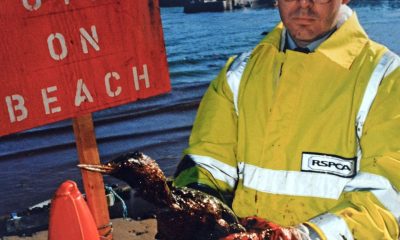Farming
Lambing Live star hails social media
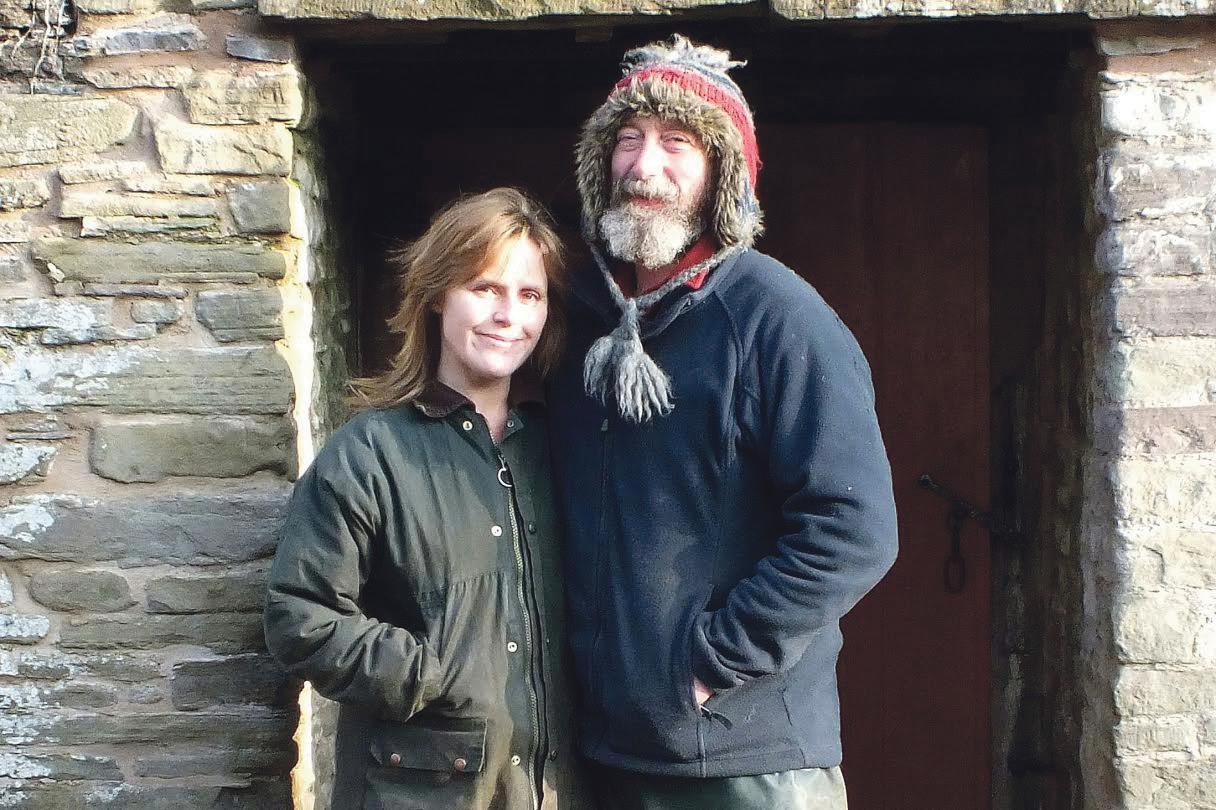
LAMBING has either already started, or fast approaching, on farms up and down the country, but how many farmers would agree to being constantly watched by a film crew of 70 people, having millions of pounds worth of satellite trucks parked taking over all the yard – and a catering tent serving food all day and night long?
by a film crew of 70 people, having millions of pounds worth of satellite trucks parked taking over all the yard – and a catering tent serving food all day and night long?
“Well the food tent was certainly a bonus!” explained Kate Beavan, the star of the first ever Lambing Live series on the BBC, when she addressed a large crowd of NFU Cymru members at the Glamorgan Annual Conference earlier this week.
Up until five years ago, Kate and Jim Beavan with their family, farmed quietly in a 300 acre traditional mixed farm near Abergavenny in Monmouthshire. The entire family exploded onto our TV screens in March 2010 and Kate in particular has had a successful spell in the media ever since, doing short films for the BBC’s One Show as their resident farmer, and presenting Channel 4’s Crufts, whilst continuing to farm at Great Tre-Rhew.
Kate explained, “We weren’t sure how the programme would be received, especially as it was the first ‘live’ programme on TV. Nothing had been done like this before. We were particularly nervous that consumers wouldn’t like seeing their ‘food being born’. The response we got was phenomenal however, we had boxes of letters and hundreds of emails of support after the series ended.”
Abi Reader, NFU Cymru Glamorgan County Chairman, congratulated Kate and Jim Beavan on the superb work they have done as ambassadors for the farming industry in the UK. She said, “We all have to take some responsibility in marketing the work we do to the wider public and Kate has shown how that is possible. Kate and I actually met through Twitter and I believe that social media is an extremely powerful method of getting our message out there about how we produce the nation’s food and drink.”
Abi continued, “Social media is the only way, I know, how you can talk directly to politicians, decision makers, even celebrities and use it to promote your business and the farming industry as a whole. Not only that, we all know that farming can be a lonely occupation but social media makes you feel like you’re part of a worldwide community.”
Kate went on to explain to the large crowd present that having no mobile reception meant communications were difficult at the home farm, in Monmouthshire, however, she is a huge fan of twitter and now uses it to promote her new diversification – Kate’s Country School. With a zero marketing budget, Kate uses social media and the internet to promote her courses, including lambing, cider making, wildlife identification and animal husbandry. “The power of social media and the internet means we have visitors from all over the world coming to Great Tre-Rhiw to do the courses.”
John Davies, NFU Cymru’s Deputy President thanked Kate and Jim Beavan for being such good ambassadors for the farming industry in Wales. He gave high praise indeed when he explained his father would sneak off from their own lambing shed at home, five years ago, in order to watch the Beavan family on ‘Lambing Live’. John also thanked HSBC for their generous sponsorship of the annual conference held in the Grove Golf Club, Cornelly.
Farming
Performance recording transforms hill flock at Llysfasi college farm

A WELSH college farm is successfully lambing triplet-bearing ewes outdoors on exposed hill ground after introducing genetic performance recording to strengthen maternal traits and flock resilience.
At Coleg Cambria Llysfasi, near Ruthin, a flock of 120 pure Welsh Mountain ewes grazes land rising between 1,000 and 1,300 feet above sea level, where winter conditions can be harsh and only the hardiest sheep thrive.
Since joining the Farming Connect Welsh Sheep Genetics Programme in 2023, the farm has used Estimated Breeding Values (EBVs) to target improvements in maternal ability, growth rates and overall performance. Although genetic gains are often gradual, staff say results are already clear just three years into the scheme.
Historically, ewes carrying triplets were lambed indoors, adding labour and cost. Now, improved maternal strength means they can lamb outside with minimal intervention.

“The ewes are holding their body condition better, we haven’t had any problems lambing them outdoors and they keep their lambs very well,” said shepherd Alun Jones. “We’re seeing fewer losses and far less hands-on work. In the 2025 season we only assisted two ewes out of 120.”
The wider system runs 600 ewes, including Welsh Mountains crossed with Abertex to produce mule ewe lambs, and mules crossed with Beltex or Texel rams for finishing lamb production. Plans to phase out the Welsh Mountain breed were reversed after recognising its value for hardiness and mothering ability in upland conditions.
Performance recording began in autumn 2023 with tissue samples, body condition scoring and regular weighing to create a reliable data baseline.
“Before, we were judging by eye,” said Mr Jones. “Now we’ve got hard evidence to guide decisions.”
By identifying and removing the bottom 20 per cent of performers, the flock’s overall index has risen from £13 to £16.24 — a significant lift in commercial potential.
Lambs are currently creep-fed and sold from November to January at 38–42kg liveweight, with a longer-term aim to finish earlier and reduce concentrate use.
Farm manager Dewi Jones said the data has also changed how they buy rams.
“When you’re at a sale and you’ve got the indexes in front of you, you can draw a red line through the animals that don’t stack up. Type still matters, but figures matter just as much. Data gives you confidence in your choices.”
Some home-bred ram lambs are now matching the performance of sale-topping sires, creating opportunities to retain or market their own breeding stock.
Mr Jones believes the sheep sector could benefit from taking a more data-driven approach, similar to dairying.
“If we don’t measure, we can’t improve. Recording takes time, but the rewards are there. It’s about working smarter and building a more resilient flock for the future.”
Shepherd Alun Jones with Welsh Mountain ewes at Llysfasi.
Performance recording and weighing form a key part of the improvement programme.
Business
Langdon Mill Farm Pembrokeshire expansion signed off
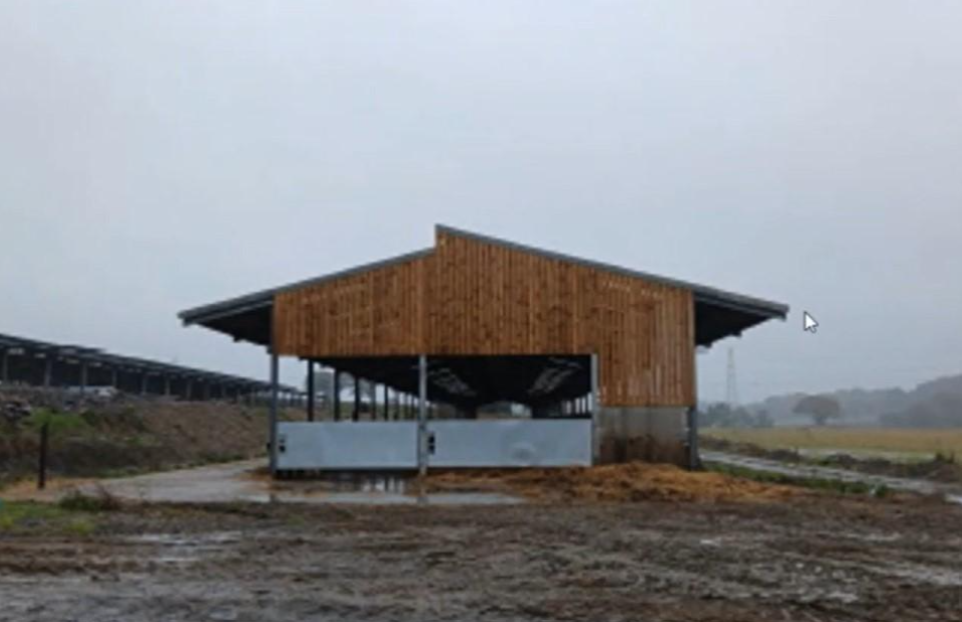
THE FINAL sign-off for plans for a heifer accommodation building and associated works at one of Pembrokeshire’s largest dairy farms, with a milking herd of 2,000 cows, have been given the go-ahead.
In an application backed by councillors at the December meeting of Pembrokeshire County Council’s planning committee, Hugh James of Langdon Mill Farms Ltd sought permission for a 160-metre-long heifer accommodation building, a slurry separation/dewatering building and associated yard areas at 1,215-hectare Langdon Mill Farm, near Jeffreyston, Kilgetty.
A supporting statement through agent Reading Agricultural Consultants said: “The holding currently has a milking herd of approximately 2,000 cows, which are housed indoors for the majority of the year, with dry cows and heifers grazed outdoors when weather and soil conditions permit.
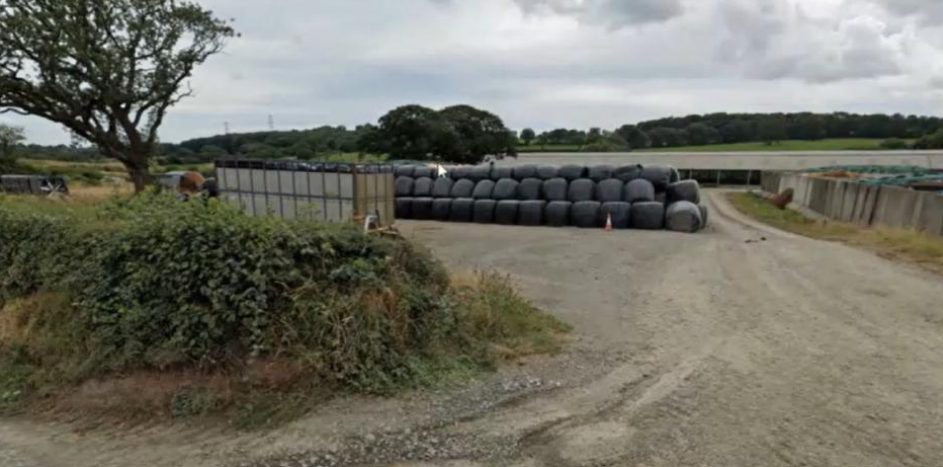
“There has been significant investment in buildings and infrastructure at the farm over the last decade in respect of cattle accommodation, slurry storage, milking facilities, Anaerobic Digestion (AD) plant, feed storage. Recently a calf and weaned calf accommodation buildings were approved by Pembrokeshire County Council with construction almost complete.
“The unit is efficient, achieving yields of more than 10,000 litres/cow/year, with cows being milked three times/day in the 60-point rotary parlour. Langdon Mill Farm currently directly employs 21 full-time, and three part-time staff. Of these, four live on site in the two dwellings opposite the farm, with the remaining staff living in the locality.”
It added: “Although the unit has previously purchased heifers to aid expansion, the farm now breeds most of its own replacements to improve genetics and to minimise the ongoing threat of bovine tuberculosis (bTB).”
It said the proposed building would be used by heifers between the ages of 7-22 months, the siting “directly influenced by the adjacent calf and weaned calf buildings, with livestock being moved from one building to the next as they get older”.
Members unanimously supported the recommendation of approval, giving delegated powers to the interim head of planning to approve the application following the final approval of a habitats regulations assessment.
An officer report published yesterday, February 5, said Natural Resources Wales confirmed it had received the assessment, and, “in consideration of the mitigation measures detailed and on the understanding there is no increase in stock, they agree with the LPA’s conclusion that an adverse effect upon the integrity of the SAC [Special Areas of Conservation] sites can be ruled out”.
Formal delegated approval has now been granted by officers.
Farming
Forgotten meats tipped as future ‘superfood’ comeback
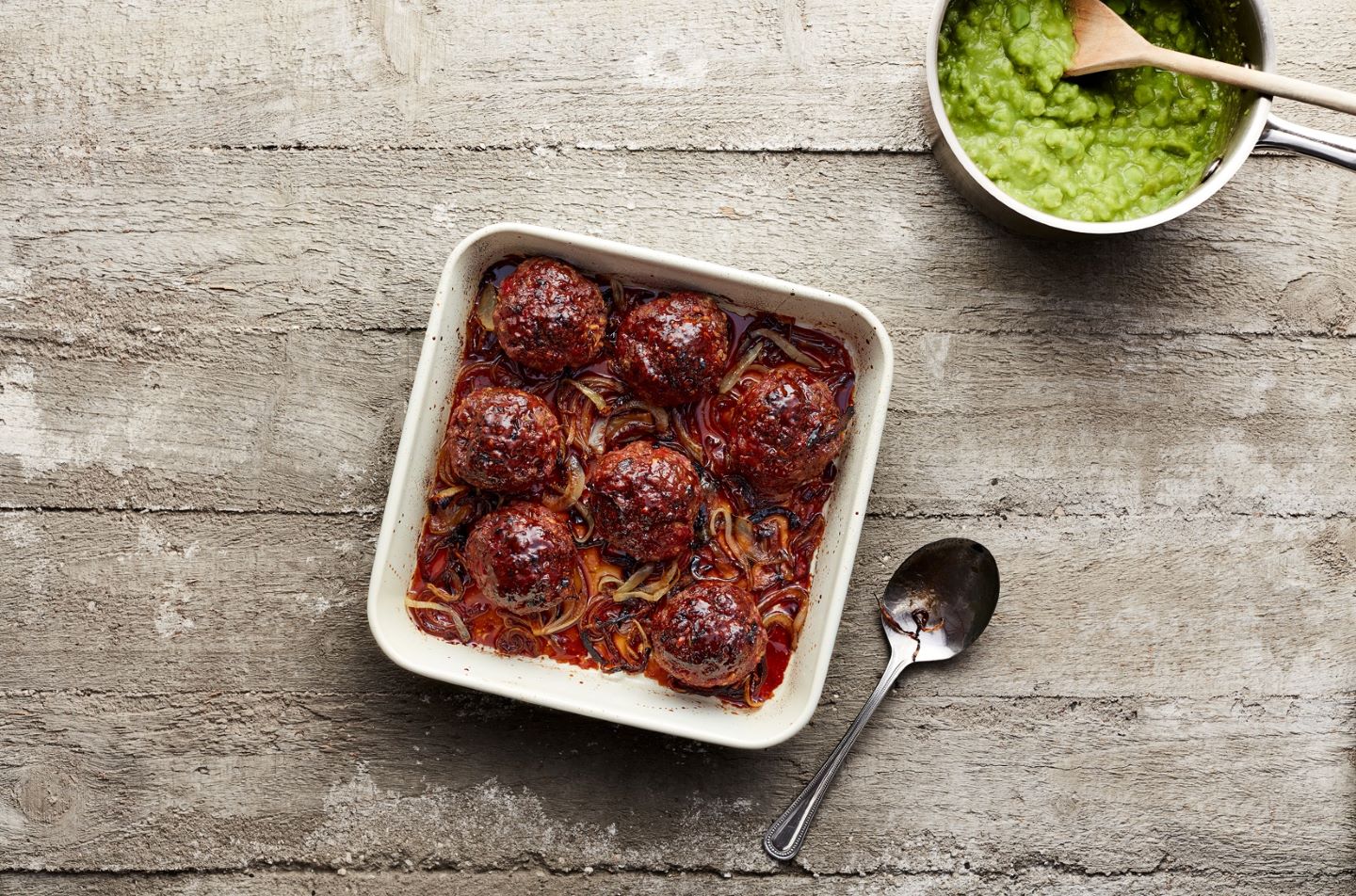
SO-CALLED “forgotten meats” such as liver, heart and kidneys could soon find their way back onto dinner plates, with scientists suggesting they may offer a cheap, sustainable and highly nutritious alternative to modern ultra-processed foods.
Offal was once a staple of everyday diets across the UK, particularly in working-class households, but has steadily fallen out of favour in recent decades despite being rich in iron, protein and essential vitamins.
Now researchers at Aberystwyth University are working with Hybu Cig Cymru (HCC) to understand why demand has dropped and whether these cuts could be repositioned as affordable “superfoods”.
Scientists say that when nutrient-dense parts of the animal go uneaten, valuable food is effectively wasted.
Dr Siân Mackintosh, from the university’s Institute of Biological, Environmental and Rural Sciences (IBERS), said these meats could play an important role in healthier and more sustainable diets.
“Where they are not being used, these nutrient-dense ‘forgotten meats’ represent a significant loss of nutrients from our food chain,” she said. “Incorporating them as part of a balanced diet could support human health while also reducing food waste and improving environmental outcomes.”
Taste tests win over public
To test public attitudes, HCC staff have been running tasting sessions at major agricultural events including the Royal Welsh Show and the Winter Fair in Llanelwedd.
Visitors sampled dishes made with Welsh lamb’s liver, including stroganoff, traditional faggots and pâté. Organisers say many people were surprised by the flavour and keen to learn how to cook them at home.
Dr Eleri Thomas, Future Policy and Project Development Executive at HCC, said interest was stronger than expected.
“We believe there is significant potential for these forgotten meats to be incorporated back into our diets,” she said. “Consumers liked the flavour and wanted recipes and cooking tips, as well as understanding the nutritional value.”
She added that making better use of undervalued cuts could improve sustainability across the meat supply chain while creating new marketing opportunities for Welsh producers.
Part of wider sustainability project
The work forms part of the SMART Nutrient Cymru project, funded through the Welsh Government’s innovation support scheme.
Project lead Dr Christina Marley said the aim is to capture nutrients currently being lost across the agri-food system.
Alongside the collaboration with HCC, the team has also partnered with Dŵr Cymru Welsh Water on land management to protect rivers, and with British Wool to explore new uses for fleece by-products.
IBERS itself is one of eight UK research institutes strategically supported by Biotechnology and Biological Sciences Research Council, providing national expertise in grassland and plant breeding science.
Researchers say that with food prices rising and pressure growing to reduce waste, traditional nose-to-tail eating could offer both economic and environmental benefits.
Image: Welsh lamb faggots (Pic: HCC)
-

 Health1 day ago
Health1 day agoHealth Board to decide future of nine key services at two-day meeting
-

 Business3 days ago
Business3 days agoComputer Solutions Wales under fire from customers
-

 Business6 days ago
Business6 days agoSix-figure negligence victory leaves retired builder trapped in divorce limbo
-

 Business5 days ago
Business5 days agoMinimum alcohol price to rise by 30 per cent as retailers warn of border impact
-
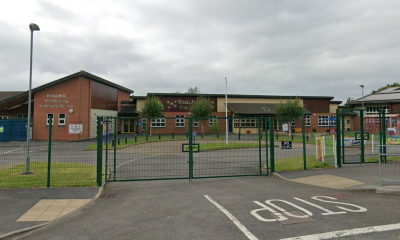
 Education6 days ago
Education6 days agoSecond west Wales school placed in lockdown within days
-

 Community2 days ago
Community2 days agoFacebook ‘news’ site targeting Herald editor collapses after community backlash
-

 Charity3 days ago
Charity3 days agoWelsh patient voices help shape new UK-wide online kidney forum
-

 Comment7 days ago
Comment7 days agoOpinion: How Milford Haven school reached this point






















